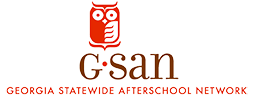High-quality summer programs are critical in making sure that Georgia’s youth have a safe, enriching place to go when school is out. Low-income students often lack opportunities during the summer and actually start the school year off in a worse position than where they finished the previous school year. This is often referred to as the summer slide and accounts for about two-thirds of the achievement gap in ninth grade reading. Quality summer programs can drastically help mitigate these effects for low-income youth. Check out the resources below to support Georgia’s youth during the summer. Summer Matters explains how education leaders can use summer programs to stop summer learning loss, and build student and staff capacity to succeed in the new Common Core environment. The Wallace Foundation’s Summer Learning Project is a six-year effort to see if participation by low-income students in voluntary summer learning programs led by public school districts can improve student performance. Specifically designed for afterschool and day camp, these activities are educational and encourage kids to dig deeper into learning while also being fun! This research brief is designed to inform the discussion among policymakers and providers about how to expand learning time for today’s youth. Year-round learning consists of intentional, community-based efforts to connect school, afterschool, and summer learning. This resource is an online database of resources provided by the National Summer Learning Association. Resource categories include college and career readiness, STEM, funding, summer learning loss, and impact of summer programs. This roadmap includes descriptions of federal, state, and local funding sources, how to use partnerships and private funding, strategies of funding in action, and examples of how summer learning programs obtained funds. This resources provides an overview of summer learning loss and practical suggestions for programs on how to close the “gap” and it provides practical tools and ideas for afterschool staff on how to create and support an environment of learning in summer programs. This resource offers data-gathering youth self-report measures that focus on common camp outcomes related to skills that build successful contributing members of our society. Questionnaires are statistically tested, camp-specific, age-appropriate, easily administered tools AND they can be customized to any camp. This resource offers a fun way for kids, families, and educators to track their reading progress over the summer with opportunities for exciting prizes and activities. During the summer months, myON makes its digital library available to Georgians for free. This recorded webinar from No Kid Hungry will provide a process to develop a comprehensive communications and outreach plan, tools to help you implement your strategy, and examples of effective outreach in action. This toolkit from No Kid Hungry will help you get the word out about your summer meals program. Join No Kid Hungry and global IT and business firm CGI for a recorded webinar to learn about technology trends and discuss how technology can be and already is being used to modernize programs, increase efficiency and improve decision-making. This guide from the Food and Research Action Center outlines a couple key strategies to improve the quality of meals provided including strengthening contract language and improving communication with vendors. Summer
On this Page:
Summer Learning
Putting Summer to Work: Getting a Head Start on the Common Core
Effects of Summer Learning on Low-Income Students’ Outcomes
ExploraKits
Year-Round Learning: Linking School, Afterschool, and Summer Learning to Support Students
Summer Learning Library
Moving Summer Learning Forward: A Strategic Roadmap for Funding in Tough Times
Summer Learning Guide
American Camp Association Youth Outcomes Battery
Scholastic Summer Reading Challenge
MyON Digital Library
Summer Food Service Program
Developing an Effective Communications Plan for your Summer Meals Program
Summer Meals Program Media Toolkit
Level Up: Applying Technology to Summer Meals
A How-To Guide for Summer Food Sponsors on Purchasing High-Quality Summer Meals
Did You Know?
Only one in six of Georgia’s low-income youth eligible for free or reduced lunch receive meals during the summer.

